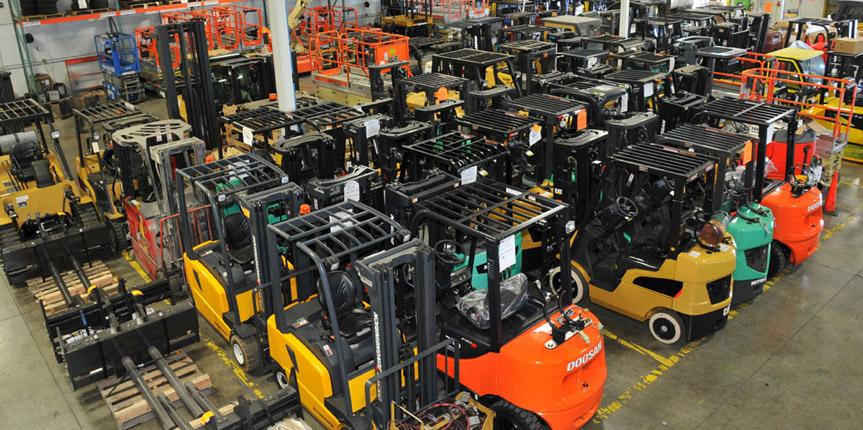With renewable energy moving to the forefront of mainstream energy consumption, now is a great time for forklift fleet managers to take steps to lower their carbon footprint, which can also improve energy efficiency and cost. “Going green” doesn’t mean you have to choose between saving money, conserving natural resources, or protecting the environment. Fortunately, you can have your cake and it eat, too.
Assess
The first forklift, built in 1917, was powered with gasoline. Nearly 90 years later, most lifts are still powered with gasoline, and their efficiency levels cover a broad spectrum. “Efficient” for one model might be wasteful for another, meaning it is out of tune. Trucks should be serviced every 250 hours of work and checked for proper emissions. This might sound simple, but an out-of-tune truck can dump far more wasteful emissions than it should into the air and will eventually cost more to fix; thus, negatively affecting other energy usage within the warehouse.
Decrease Emissions
Have all trucks in a fleet tuned – the euphemism “a well-oiled machine” didn’t come about by accident. A technician can use a gasoline analyzer to best identify the worst offenders, and then a fleet manager can act accordingly. Besides tuning the engine, swapping out an internal combustion engine for a Compressed Natural Gas (CNG) engine can save up to 80% of carbon emissions. The CNG system isn’t an overly expensive replacement, but it does require having a filling station on site. Even with an on-site filling station, the CNG engine is incredibly cost-effective because the fleet can keep the same trucks and greatly lower emissions.
Electric Lifts
Want zero emissions while maintaining high performance levels within the fleet? Consider going electric. For every 10,000 hours of use, internal combustion engine-powered forklifts emit 120,000 more pounds of carbon emissions than electric-powered forklifts. Electric forklifts omit over one million pounds of pollution from ever entering the atmosphere. But, isn’t replacing a fleet with electric lifts expensive? What’s another positive to help with cost? Good questions! Electric forklifts generate very little heat compared to internal combustion forklifts. This reduces the strain on warehouse temperature-control units and the cost for cooling and air conditioning for the life of the truck. And, with electric forklifts, there are no engine, transmission or coolant fluid changes and no need to dispose of used fluids, oil or filters. One more selling point: truck maintenance is roughly about 30% of internal combustion engines. So, if a fleet is considering going green and wants to be able to stay in the black while doing so, there’s just no better time than the present.

